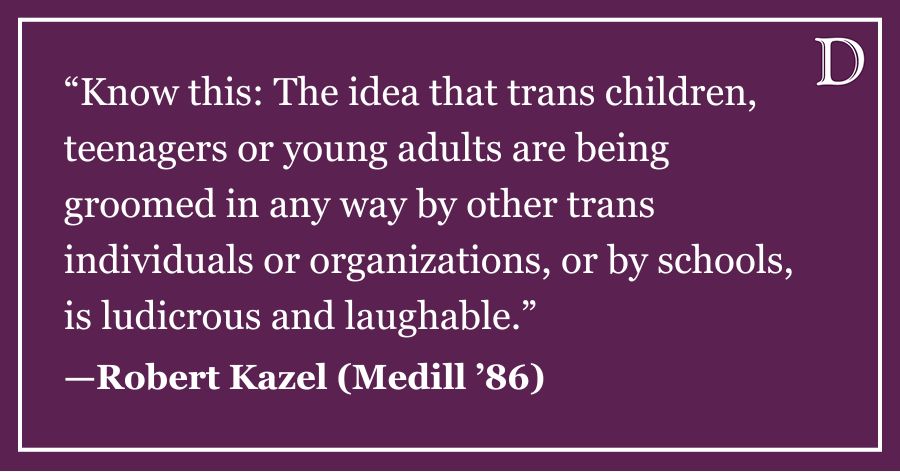On Saturday, I schlepped a 26-pound box filled with plastic cups from North Campus to the Evanston UPS. My fraternity just became involved with TerraCycle, a company that literally turns trash into something useful.
My fraternity goes through hundreds of plastic cups every week, but because many of these cups are made from polystyrene they cannot be recycled like other forms of plastic.
Here is where TerraCycle comes in.
TerraCycle has found a way to reuse and upcycle plastic waste into new products. The polystyrene in the hundreds of plastic cups I just shipped to TerraCycle will be used to make backpacks, trashcans, containers and more. In addition to plastic cups, TerraCycle also accepts un-recyclable chip bags, Capri Sun drink pouches, Lunchables and practically any other plastic you can name, including iPods, computers, and old cell phones.
TerraCycle rewards its plastic donors by typically giving them 2 cents per unit of waste that is sent to them. TerraCycle recommends donors donate this money to charity. Since 2001, the company has been able to provide more than $5 million in charitable donations. Who doesn’t like selling trash for money?
Through its upcycling program, TerraCycle has revolutionized the recycling industry. Although trash still carries a negative stigma, TerraCycle is beginning to debunk the myth that whatever we throw away is no longer useful. Every day, Americans discard plastic products that took more energy and water to make than the value they provided to the consumer. Producing bottled water requires up to 2,000 times more energy than drinking tap water, yet Americans remain addicted to plastic bottles.
While the national recycling rate for plastic water bottles has increased, it still hovers under 40 percent, while consumption of plastic continues to grow. The recycling rate of plastic bottles cannot compete with the national demand. Although it would be a miracle for Americans to stop using plastic waste, it is neither realistic nor feasible. We must turn to other creative options to limit the plastic waste that eventually sits in landfills for thousands of years.
One such creative option is local bans on bottled water, which was recently championed at Northwestern. While no major breakthrough or deal with the administration was reached on this front, Pura Playa is currently attempting to reduce plastic bottle consumption through implementation of bottle refilling stations in dorms and dining halls. While recycling at NU can help mitigate the impact of continuing to support plastic, we recycle only 30 percent of the 3,500 tons of annual waste generated by the University. I hope to see this number rise in the future as students become more aware of recycling options in their dorms or Greek houses.
Since an overall ban on plastic non-reusable waste has stalled, TerraCycling may be a viable option to take its place. TerraCycling is easy, efficient and profitable. For Greek organizations looking to generate more philanthropic donations, sending used plastic cups to TerraCycle is a win-win situation. If an organization uses 100 cups per week, on average, in one month a profit of $20 can be made. NU should capitalize on a program that has more benefits than costs.
Will collecting and shipping plastic materials to TerraCycle require coordination and effort? Yes, but everything in life worth doing is going to require motivation and a desire to see a goal actualized. You don’t have to be an environmentalist like me to see that what TerraCycle does could have a positive effect on this campus. While it may sound idealistic, a campus-wide effort beyond ordinary recycling and toward TerraCycling could put NU on the path to be the most sustainable campus in America.
Some may shoot me down and say, “No one is interested in TerraCycling” or “It won’t catch on like you want it to.” Either way, I believe we need big ideas to solve our nation’s sustainability issues. If you can’t or won’t think big on an issue, what’s the point of solving the issue in the first place? I am saying it now, and someone please quote me on it, TerraCycling is the next big thing.
Jonathan Kamel is a Weinberg freshman. He can be reached at [email protected]. If you want to respond publicly to this column, send a Letter to the Editor to [email protected].














